SJSU Legacies
The ISSSSC celebrates and honors its athletes and athlete activists who have engaged in the fight for social change and equity. These stories embody the SJSU legacy of equity and social justice.
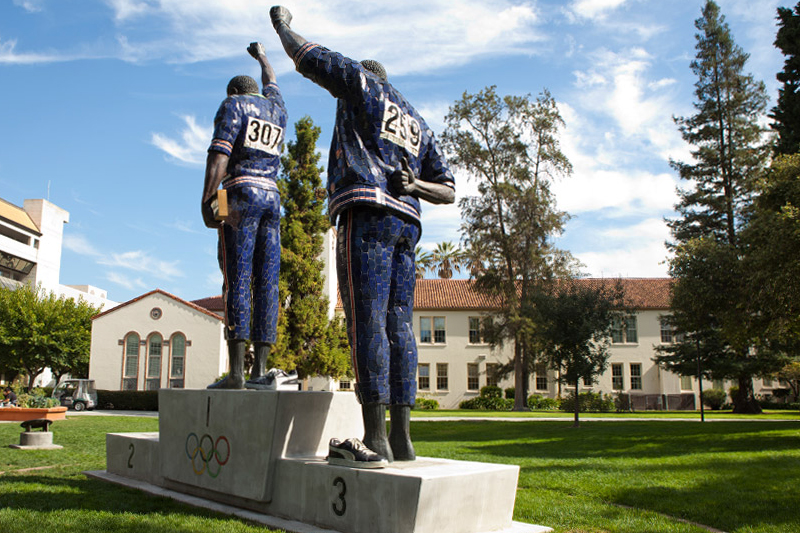
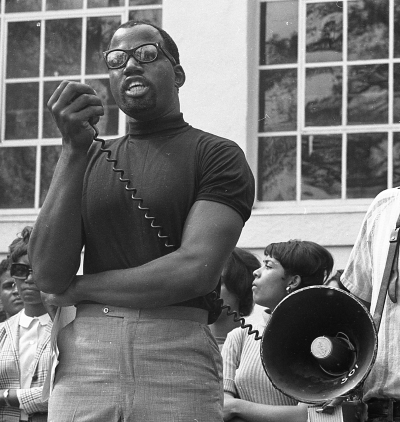
The Olympic Project for Human Rights (OPHR) Boycott
Harry Edwards and Ken Noel founded the OPHR at San Jose State in 1967 to advocate for a boycott of the 1968 Olympics in Mexico City. As Edwards wrote in The Black Scholar in 1979, “the project had four main objectives: 1.) To stage an international protest of the persistent and systematic violation of black people’s human rights in the United States; 2.) To expose America’s historical exploitation of black athletes as political propaganda tools in both the national and international arenas; 3.) To establish a standard of political responsibility among black athletes vis-a-vis the needs and interests of the black community, and to devise effective and acceptable ways by which athletes could accommodate the demands of such responsibilities; and 4.) To make the black community aware of the substantial ‘hidden’ dynamics and consequences of their sports involvement.” Members of the OPHR maintained that the Olympic boycott would proceed unless white minority ruled South Africa and Rhodesia were uninvited from the Olympic games, Muhammad Ali's boxing title was restored, Avery Brundage 's (the then president of the International Olympic Committee) resignation, and the hiring of more African American coaches. Though these demands were not met, the movement gave OPHR athletes such as Tommie Smith and John Carlos a platform to voice their concerns about the status of human rights, both in the U.S. and around the world.
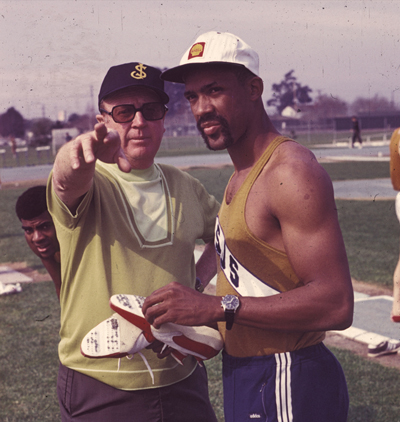
Speed City
You may be familiar with the iconic image of Olympic medalists Tommie Smith and John Carlos raising their fists during the Mexico City Olympics, but do you know about Speed City? Speed City was the name for the SJSU athletic program that fostered talented and driven athletes in the post-World War II era. Between 1941 and 1970, with the innovative coaching techniques of Lloyd “Bud” Winter, 91 Spartans were ranked in the top 10 worldwide by Track and Field News, 27 Spartans were Olympians and the men’s track and field team won the NCAA title in 1969. In addition to being at the top of their game, Speed City athletes went on to raise global consciousness of the struggle for racial and social equality through the Olympic Project for Human Rights, later becoming human rights advocates, teachers, coaches and mentors both locally and internationally.
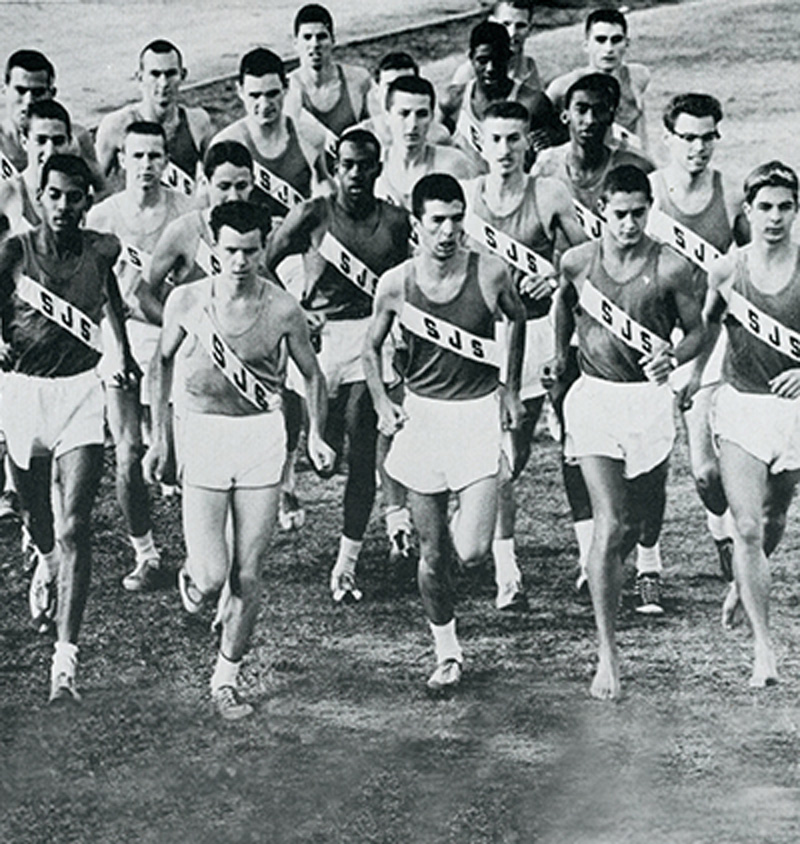
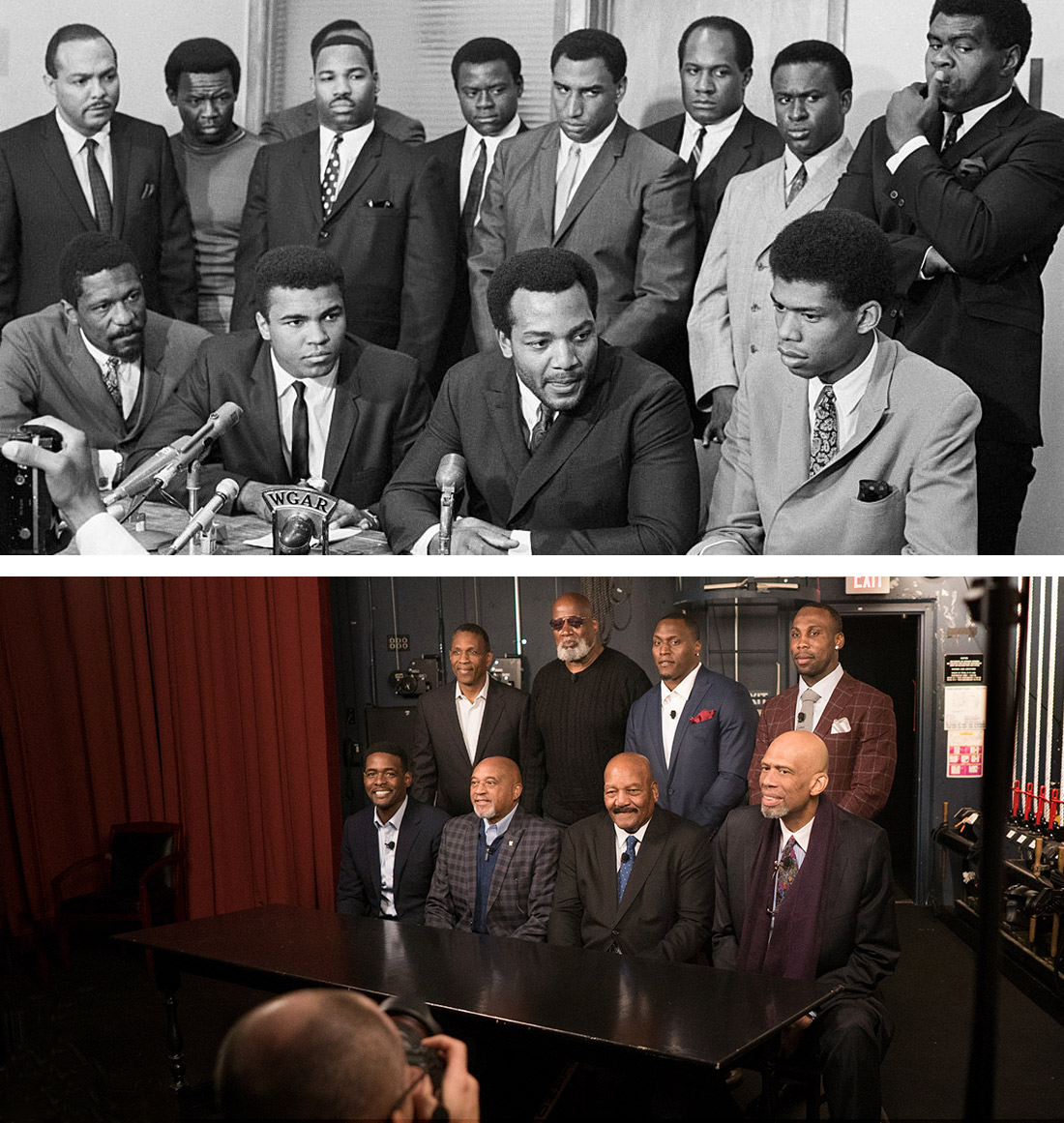
A Historic Moment
This iconic image of the panelists came from our January, 24, 2017 townhall. It is a recreation of a historic 1967 image of Kareem Abdul-Jabbar, Jim Brown, and a number of other athlete-activists who had come together in support of Muhammad Ali.